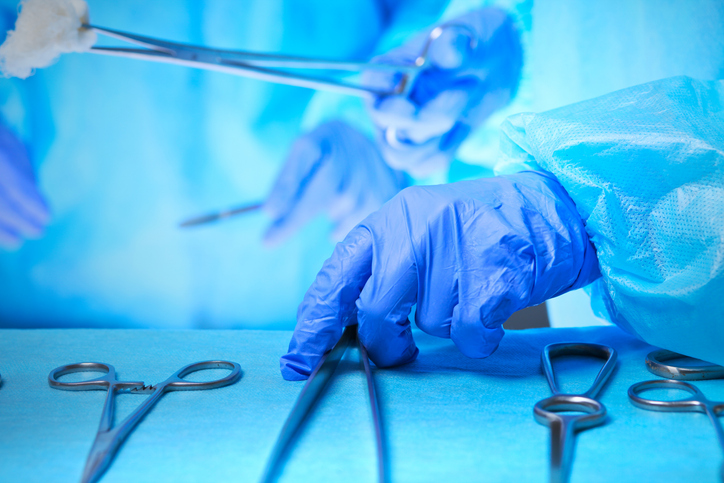Of all the industries that rely on metal components, almost none are as heavily regulated as the medical device sector. Precision and reliability aren’t just about performance — they’re integral to ensuring patient safety and care. For this reason, manufacturers of medical device parts must be able to meet strict requirements to ensure that every component is functionally sound, biocompatible, and able to withstand sterilization processes.
That’s why selecting the right manufacturer can make all the difference. A reliable manufacturing partner can help ensure that every part is produced to the highest standards of precision and quality while complying with strict industry regulations.
Let’s take a look at some of the key considerations for manufacturing medical device parts, particularly around biocompatibility, sterilization, and regulatory compliance and how a manufacturer like Advantage Metal Components supports these vital needs.
Why Precision and Compliance Matter in Medical Device Parts Manufacturing
In the medical device industry, even the smallest deviation from design specifications can have a critical impact on things like patient safety. Whether it’s a component that makes direct contact with the body, such as an implant, or one that supports the function of a medical instrument, precision is critical.
Medical device manufacturers are also subject to strict regulations like ISO 13485 and various FDA guidelines, which are designed to guarantee that medical devices are effective and safe for use in healthcare settings specifically. Compliance is critical for market approval and continued success in the industry, and the need for that compliance extends to medical device parts suppliers as well as the OEMs.
Key Challenges in Manufacturing Medical Device Parts
Strict regulations aren’t the only things that made medical device parts manufacturing such a challenge. The medical industry also requires things such as:
- Biocompatibility: Materials used for medical device parts must be safe for direct and indirect contact with human tissues, and they cannot cause adverse reactions like inflammation or infection. With a manufacturer who has experience in materials like stainless steel and titanium, you can be sure your parts will be made with patient safety and long-term performance in mind.
- Proper Sterilization: Medical device parts must withstand harsh sterilization methods like autoclaving and chemical sterilization By minimizing crevices and surface defects through precision fabrication, manufacturers can ensure smooth surfaces that facilitate efficient and effective sterilization.
- Consistency in High-Volume Production: Balancing precision with scalability is essential. Look for a manufacturer that leverages advanced CNC machining and sheet metal fabrication to produce high volumes of parts that maintain the same stringent quality standardsm throughout.
Best Practices for Designing Medical Device Parts for Biocompatibility and Sterilization
Material Selection and Surface Finishes
Material selection is one of the most important factors in medical device parts manufacturing. Not only do the right materials ensure biocompatibility, but it’s also essential to making sure that your parts can withstand healthcare sterilization processes without degrading.
Design Considerations for Sterilization
Another factor that can impact sterilization is the design of medical components. Components must be designed with cleanability in mind. Things like seams, crevices, and intricate geometries can trap bacteria and make sterilization more difficult, potentially putting patients at risk.
Collaboration for Compliance
And finally, early collaboration between design teams and manufacturers is key to ensuring that medical components are compliant with regulatory standards from the outset. With a manufacturer who can provide engineering insights and expertise, you can ensure that your designs are aligned with industry standards and the manufacturing process, so you can avoid costly delays or rework.
Advantage Metal’s Expertise in Manufacturing Medical Device Parts
Ultra-Precision CNC Machining for Medical Applications
At Advantage Metal, we specialize in ultra-precision CNC machining to create intricate components for medical devices that require exceptional accuracy and reliability. From surgical instruments to diagnostic equipment and implantable devices, we have the advanced machining capabilities to craft parts that meet the tightest tolerances.
Custom Sheet Metal Fabrication for Medical Enclosures and Housings
In addition to precision machining, we excel in custom sheet metal fabrication for medical device housings and enclosures. Whether it’s for MRI machines, ventilators, or diagnostic tools, we have the capabilities to produce high-quality sheet metal parts that are crucial for the functionality and protection of medical devices. Our use of robotic laser cutting and welding techniques also ensures smooth, precise surfaces that can be easily sterilized.
In-House Engineering Support and Quality Assurance
Lastly, we offer in-house engineering support to optimize designs for manufacturability and regulatory compliance. Our team works directly with clients to refine designs and ensure that every part can be efficiently produced without compromising quality or performance. We also conduct rigorous inspection and testing to guarantee that each component meets the stringent requirements of the medical industry.
Get Started with Advantage Metal for Your Medical Device Manufacturing Needs
At Advantage Metal, we’re committed to providing the highest quality medical device parts with precision, compliance, and reliability. Whether you need ultra-precision machining, custom sheet metal fabrication, or expert engineering support, our team is ready to help bring your medical device projects to life.
Connect with our team today to learn more about how we can support your manufacturing needs and ensure the success of your medical products.

